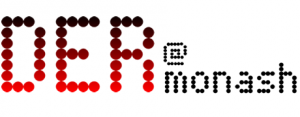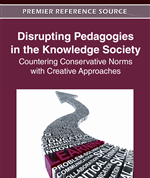Author:
Julie Faulkner
 In December 2013 The Age published a letter that continued the debate about our education system failing to meet student learning needs. Rather than picking up the current resource debate, however, Johanna O’Farrell believes that ‘the system is so broken that it cannot be fixed’ (The Age 21/12/13) because of poor pedagogy and curriculum. Self-identified as an English and History teacher who has studied at one of ‘Australia’s leading universities’, she rails against the lack of formal, prescriptive approaches being taught in primary schools and the resulting lack of ‘intellectual skills’ in students about to enter secondary schools. O’Farrell puts the responsibility for ‘lax, unstructured approaches’ at the feet of teacher education, and points to ICT as ‘in fact, little more than a gimmick’, the novelty of which is fast wearing off. At the same time, she claims children spend so much time in front of a screen that writing (by which she means handwriting) is now no longer neat nor clear.
In December 2013 The Age published a letter that continued the debate about our education system failing to meet student learning needs. Rather than picking up the current resource debate, however, Johanna O’Farrell believes that ‘the system is so broken that it cannot be fixed’ (The Age 21/12/13) because of poor pedagogy and curriculum. Self-identified as an English and History teacher who has studied at one of ‘Australia’s leading universities’, she rails against the lack of formal, prescriptive approaches being taught in primary schools and the resulting lack of ‘intellectual skills’ in students about to enter secondary schools. O’Farrell puts the responsibility for ‘lax, unstructured approaches’ at the feet of teacher education, and points to ICT as ‘in fact, little more than a gimmick’, the novelty of which is fast wearing off. At the same time, she claims children spend so much time in front of a screen that writing (by which she means handwriting) is now no longer neat nor clear.
O’Farrell’s argument suffers from a number of other inconsistences. She is a secondary teacher, teaching for three years, speaking on behalf of primary educators. She presumably teaches in one school in one state but ‘can attest to the fact that teaching courses around the country have tossed aside any rigour, routine and repetition when it comes to learning, especially in the junior years’.
Her argument (and that of Christopher Pyne) oddly returns to the age when children learned their tables and parroted spelling words. I say ‘oddly’ because I assume neither were schooled in the 1950s or 60s and could not remember the excruciating boredom and meaninglessness of low level tasks. Much has been written on the new basics teachers and learners need to negotiate in the 2000s, and it is an aspect of ‘digital gimmickry’ I want to address here.
I asked my second Year P-10 BEd preservice students in their English 2 unit to hand write me a letter of introduction, prior to uploading a digital introduction and then completing a reflection on how purpose, mode and audience influenced the writing. I frame this task by reminding students that they have to teach handwriting as primary teachers, and I hand write them a personal letter in reply. I have been implementing this task for 5 or 6 years, and note an interesting trend. Students are admitting that they struggle with the hand written element of the task. A number confess to ‘not being able to think’ when they put pen to paper. They often compose first on a screen, then transcribe to paper, anxious that no tool will autocorrect their spelling and sentence construction. Many then tend to photograph their hand written letter and email it to me, despite a face to face tutorial every week. The letters vary in presentation and content, but increasingly, they are digitally- mediated.
What I see is that hand writing is becoming ‘other’ – emblematic perhaps of the way that digital technologies are fast reshaping the so-called basics. Bill Green and Chris Bigum predicted this shift in their 1993 article, Aliens in the classroom, hinting even then that it is likely to be the teachers who are the aliens, a notion we now readily accept. Certainly, Johanna O’Farrell seems determined to ignore the rich and usually digital ways that students learn. No educator I know feels that children should be denied access to the underlying architecture of language or numerical concepts. However, we have to listen to, observe and respond to learner interests and develop strategies to connect such interests to new knowledge. Perhaps O’Farrell will come to understand this as she continues her early career. ‘Rigour, routine and repetition’ favoured by O’Farrell are but small parts of this complex process.
References
O’Farrell, J. (2013, December 21). Splashing cash won’t fix Australia’s broken education system. [Letter to the Editor]. The Age, retrieved online http://www.theage.com.au/comment/splashing-cash-wont-fix-australias-broken-education-system-20131220-2zqpl.html
Green, B. and Bigum, C. (1993) Aliens in the classroom Australian Journal of Education 33 (2), 119 -134.




